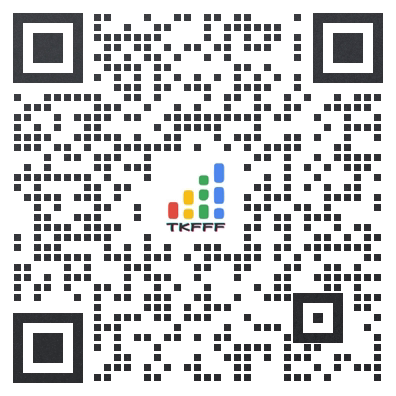
Attorney General Mike Hilgers spoke during a news conference in Lincoln. (Zach Wendling/Nebraska Examiner)
LINCOLN — Teen TikTok users and parents who signed them up for the social media app were misled by the company about the safeguards in place to protect younger users, Nebraska Attorney General Mike Hilgers said Wednesday.

Instead, Hilgers said, young people on the app are bombarded by addictive videos the algorithm recommends, including some that Hilgers said put young people’s mental health at risk, ranging from content encouraging body image issues to discussions about suicide.
The Attorney General’s Office filed a lawsuit Wednesday in Lancaster County District Court alleging that the popular social media app built its business on hooking teens and children on the feedback loop of social media engagement.
Hilgers on Wednesday said it’s no accident that what social media companies have been doing in recent years to grow and keep their audiences sounds similar to what tobacco companies did in trying to lure young smokers into becoming lifelong users.
Hilgers says TikTok knew
A key driver of the lawsuit, Hilgers explained, is that TikTok knows it is distributing questionable videos to young people and knows that its business model relies on growing and holding its “golden audience.”
He said his investigators created accounts pretending to be 13-17 years old. The lawsuit alleges these investigators saw videos show up on their “For You” feeds that authorities deemed inappropriate. The app offered them without investigators searching for related topics.

“TikTok holds itself out as a safe platform,” Hilgers said. “It tells people that it is a family friendly platform. It tells people that it’s been appropriate for people over the age of 12. It tells people that its restricted mode is effective.
“It has all sorts of claims that it makes to the public, and none of those claims are true.”
Hilgers said the lawsuit stemmed from a two-year investigation started by his predecessor, Doug Peterson, whose office began looking into social media content. The investigation has thus far resulted in Nebraska suing TikTok and Facebook’s parent company, Meta.
TikTok says it has safety tools
California-based TikTok and its Chinese parent company, ByteDance, said Wednesday that the app has “industry-leading safeguards to support teens’ well-being.” Its statement pointed to age restrictions, parental controls, time limits and more.
“We will continue working to address these industry-wide challenges,” the company spokesman said.
Hilgers said those promised protections are ineffective and confusing for teens and parents to use. He also said they don’t curb access to questionable material by teens and younger kids. He said his office also saw inappropriate sexual content.
The Nebraska consumer protection lawsuit is the latest risk facing TikTok. It also faces a new federal law seeking to force the separation of the company from its Chinese ownership by 2025 over data privacy and U.S. national security concerns.
Nebraska is one of more than 25 states that have banned the use of TikTok on phones, tablets and computers used by state government employees, citing security concerns. The federal government also restricts the use of the app on its devices.
Some states have discussed passing broader bans on the app, which is among one of the more popular ways young people get their news and information. Montana recently banned it, but a federal judge paused the ban, citing constitutional concerns.
Civil fines possible
In Nebraska, TikTok and ByteDance face potential civil fines of up to $2,000 for each alleged violation of the state’s Consumer Protection Act and another $2,000 for each alleged violation of the Uniform Deceptive Trade Practices Act.

Hilgers, much like he did when suing Meta, said he hopes the company will change course and “tell the truth by saying exactly what their platform does.” He said they could change the material they show teens and younger users.
“At the end of the day, we want them to be honest,” he said.
The AG said he would have brought the lawsuit against TikTok with or without the passage last session of State Sen. Carolyn Bosn’s Legislative Bill 934, which demands jury trials in similar lawsuits.
But he said he was encouraged at the prospect of a Nebraska jury weighing allegations against TikTok and ByteDance. Bosn, a former prosecutor, has argued that requiring jury trials could encourage settlement talks with the companies involved.
Internal documents could be key
Hilgers said his office is asking a judge to publicly release or unseal internal documents obtained from TikTok during the investigation. He said they will help show what sort of content was shown to teens.
Some glorified drug use. Others talked about sex. Still others focused on weight loss and were steered to young women already at risk of eating disorders.
Hilgers expressed skepticism that TikTok’s system of removing videos that are reported as in violation of its rules is the most effective way to police the site. He said TikTok’s algorithm is sophisticated enough to limit what it shares.
One of the biggest challenges for parents of children with TikTok accounts is knowing what they are named and how to access them. Many kids don’t tell parents they have access, so many parents don’t know their kids’ passwords and can’t check on them.
Hilgers said tens of thousands, if not more than a hundred thousand Nebraskans, have TikTok accounts. About 150 million Americans use the app daily. Half of its youngest users spend hours a day on the app. This hurts school performance, behaviors and mental health, he said.
The AG said he thinks he has all the tools he needs to enforce consumer protection law on TikTok. But he said he would address any shortcomings with state lawmakers. He said his office isn’t done investigating social media companies.
“This is truly digital poison,” Hilgers said.
文章来源: Nebraska Examiner
TKFFF公众号
扫码关注领【TK运营地图】

TKFFF合作,请扫码联系!







 闽公网安备35021102002035号
闽公网安备35021102002035号